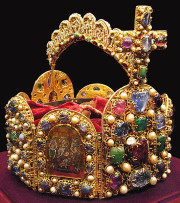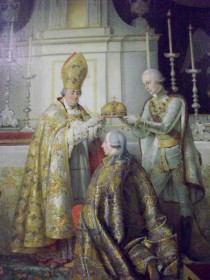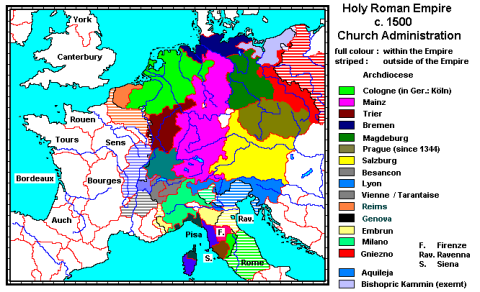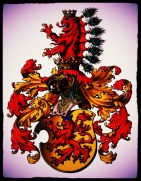Role of the Emperor
The emperor generally dominated the various states and principalities that made up the German nation (which included present-day Austria, the Czech Republic, part of Poland, Luxembourg, and other bordering areas) as well as northern Italy. The emperor was chosen by electors representing certain states and dioceses, but the position tended to become hereditary, as the electors usually selected the ruler's natural heir.
He customarily was crowned emperor by the pope in Rome. The emperor's power depended largely on his personal and family inheritances, and on alliances. Charles V, for example, when elected emperor in 1519, was also king of Spain and his domain included the Netherlands, Naples, Sicily, Sardinia, and Spanish America. His son, Philip, was the husband of the ruling queen of England (Mary I). Charles gave Austria to his brother Ferdinand, who was also king of Bohemia and of Hungary and succeeded him as emperor. Spain, however, went to his son, who became Philip II of Spain.
The emperor's power depended largely on his personal and family inheritances, and on alliances. Charles V, for example, when elected emperor in 1519, was also king of Spain and his domain included the Netherlands, Naples, Sicily, Sardinia, and Spanish America. His son, Philip, was the husband of the ruling queen of England (Mary I). Charles gave Austria to his brother Ferdinand, who was also king of Bohemia and of Hungary and succeeded him as emperor. Spain, however, went to his son, who became Philip II of Spain.





